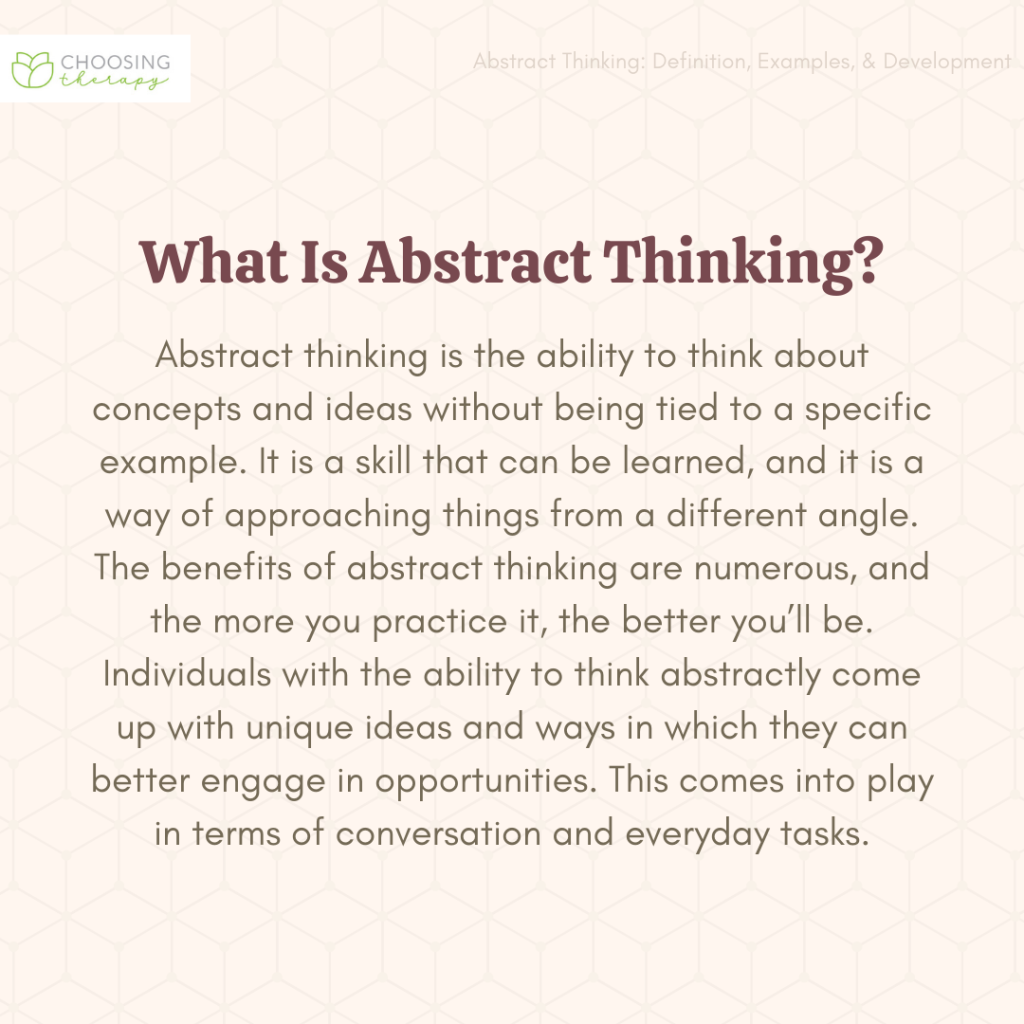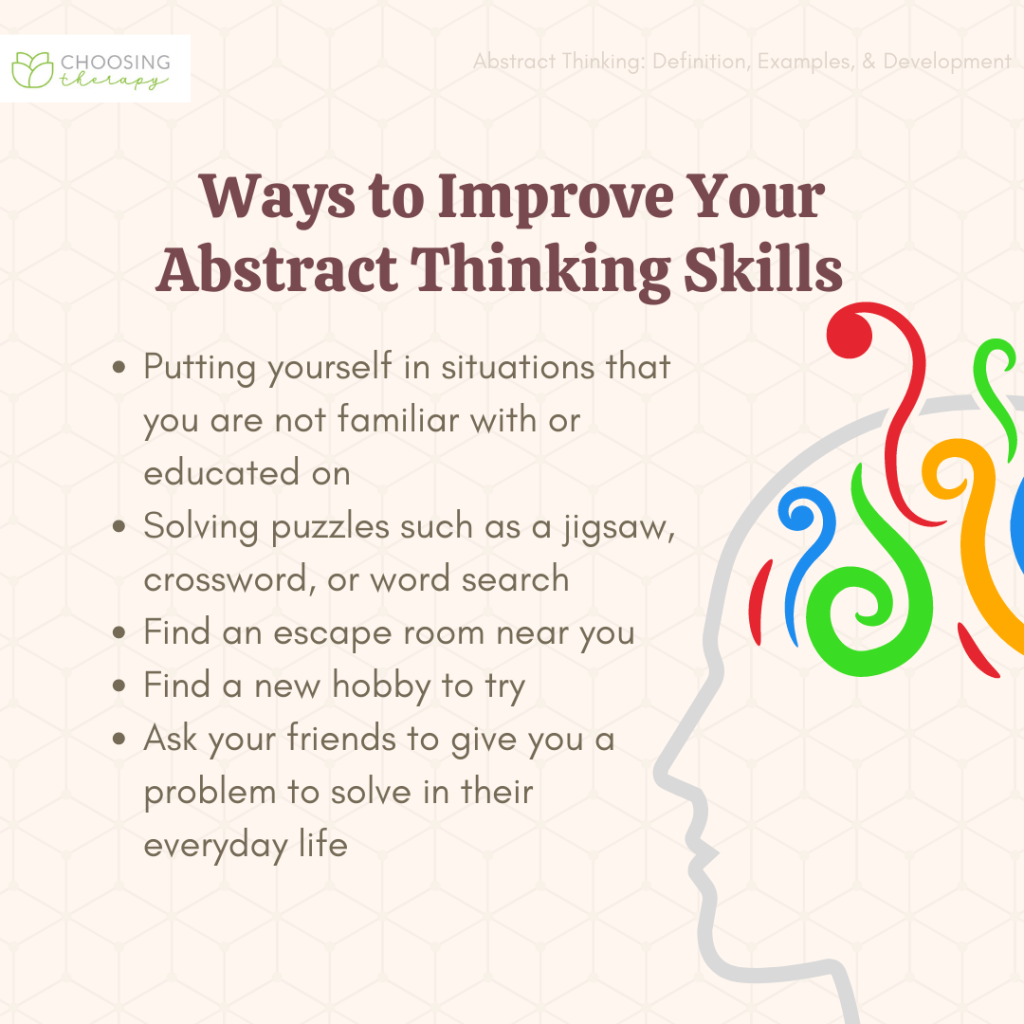Unlocking Limitless Potential: Overcoming Impaired Abstract Thinking In PTSD
Impaired Abstract Thinking in PTSD
Introduction
Welcome, Smart Readers! In this article, we will explore the topic of impaired abstract thinking in post-traumatic stress disorder (PTSD). PTSD is a mental health condition that can develop after experiencing or witnessing a traumatic event. Impaired abstract thinking is one of the cognitive symptoms that individuals with PTSD may experience. In this article, we will delve into the what, who, when, where, why, and how of impaired abstract thinking in PTSD. We will also discuss the pros and cons of this cognitive impairment and provide answers to frequently asked questions. So, let’s begin our journey into understanding the impact of impaired abstract thinking in PTSD.
3 Picture Gallery: Unlocking Limitless Potential: Overcoming Impaired Abstract Thinking In PTSD



What is Impaired Abstract Thinking?
Impaired abstract thinking refers to difficulties in understanding and processing complex or abstract concepts and ideas. Individuals with PTSD who experience impaired abstract thinking may struggle with problem-solving, critical thinking, and understanding metaphorical or symbolic language. This cognitive impairment can affect various aspects of their daily lives, including work, relationships, and overall functioning.
Who is Affected by Impaired Abstract Thinking in PTSD?

Image Source: tufts.edu
Impaired abstract thinking can affect anyone who experiences PTSD. It is estimated that approximately 7-8% of the population will experience PTSD at some point in their lives. Both men and women can be affected, regardless of age or background. However, certain factors, such as the severity and duration of the traumatic event, may increase the likelihood of impaired abstract thinking in individuals with PTSD.
When Does Impaired Abstract Thinking Occur in PTSD?
Impaired abstract thinking can occur at any stage of PTSD. It may manifest immediately after the traumatic event or develop over time as the individual grapples with the consequences of the trauma. It is important to note that not all individuals with PTSD will experience impaired abstract thinking. It varies from person to person and depends on various factors, including the individual’s resilience and coping mechanisms.
Where Does Impaired Abstract Thinking Manifest in PTSD?

Image Source: choosingtherapy.com
Impaired abstract thinking can manifest in various areas of an individual’s life. In the workplace, it may lead to difficulties with problem-solving tasks, understanding complex instructions, or grasping abstract concepts necessary for certain professions. In relationships, impaired abstract thinking can hinder effective communication and understanding of metaphorical expressions. Overall, it can impact the individual’s ability to navigate and participate fully in society.
Why Does Impaired Abstract Thinking Occur in PTSD?
The exact cause of impaired abstract thinking in PTSD is not fully understood. However, researchers believe that it may be a result of the dysregulation of brain regions involved in cognitive processing and emotional regulation. The traumatic experience and the subsequent development of PTSD can lead to changes in these brain regions, affecting cognitive functioning, including abstract thinking. Additionally, the constant hypervigilance and stress associated with PTSD may contribute to the impairment.
How Does Impaired Abstract Thinking Impact Individuals with PTSD?

Image Source: choosingtherapy.com
Impaired abstract thinking can significantly impact the lives of individuals with PTSD. It can affect their ability to problem-solve, make sound decisions, and understand complex information. This impairment may hinder their educational and career prospects, strain relationships, and lead to feelings of frustration and isolation. The challenges of impaired abstract thinking can further exacerbate the symptoms of PTSD, creating a vicious cycle of cognitive and emotional difficulties.
Pros and Cons of Impaired Abstract Thinking in PTSD
Like any cognitive impairment, impaired abstract thinking in PTSD has both pros and cons. On the positive side, it can lead individuals to develop unique perspectives and creative problem-solving approaches. It may also serve as a protective mechanism in certain situations, allowing individuals to focus on concrete tasks rather than getting lost in abstract or hypothetical scenarios. However, the cons of impaired abstract thinking outweigh the pros, as it can hinder overall cognitive functioning and limit opportunities for growth and development.
FAQs about Impaired Abstract Thinking in PTSD
Is impaired abstract thinking a permanent condition in PTSD?
No, impaired abstract thinking in PTSD is not necessarily a permanent condition. With appropriate treatment and therapy, individuals may experience improvements in their cognitive functioning, including abstract thinking skills.
Can medication help improve impaired abstract thinking in PTSD?
Medication alone may not directly improve impaired abstract thinking. However, certain medications used in the treatment of PTSD, such as antidepressants, can help alleviate symptoms of depression and anxiety, which may indirectly improve cognitive functioning.
Are there any strategies to cope with impaired abstract thinking in PTSD?
Yes, there are several strategies individuals can employ to cope with impaired abstract thinking. These include breaking down complex tasks into smaller, more manageable steps, seeking support from therapists or support groups, and engaging in activities that stimulate cognitive functioning, such as puzzles or brain-training exercises.
Can impaired abstract thinking in PTSD be completely cured?
While there is no definitive cure for impaired abstract thinking in PTSD, it is possible for individuals to experience significant improvements with appropriate treatment and therapy. The focus is on managing symptoms, developing coping strategies, and enhancing overall cognitive functioning.
Is impaired abstract thinking a common symptom of PTSD?
Impaired abstract thinking is one of the cognitive symptoms that can occur in individuals with PTSD. However, not all individuals with PTSD will experience this specific impairment. The prevalence of impaired abstract thinking varies among individuals.
Conclusion
In conclusion, impaired abstract thinking is a cognitive impairment that can occur in individuals with PTSD. It can affect various aspects of their lives, including work, relationships, and overall functioning. While it may have some unique perspectives and problem-solving approaches, the cons outweigh the pros, hindering cognitive functioning and limiting opportunities for growth and development. However, with appropriate treatment and therapy, individuals can experience improvements in their cognitive skills, including abstract thinking. It is important for individuals with PTSD to seek support and engage in strategies that can help them cope with impaired abstract thinking and enhance overall cognitive functioning.
Final Remarks
Impaired abstract thinking in PTSD is a complex topic that requires further research and understanding. The information provided in this article serves as a general overview and should not replace professional medical advice. It is essential for individuals with PTSD to consult with healthcare professionals for accurate diagnosis, personalized treatment plans, and guidance. Remember, seeking support is a crucial step towards healing and managing the challenges associated with impaired abstract thinking in PTSD.
This post topic: Abstract


